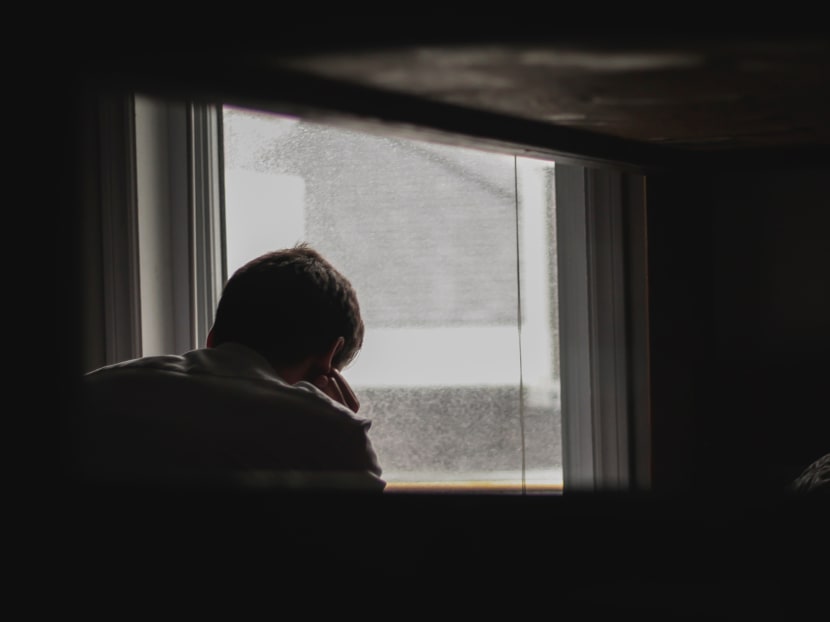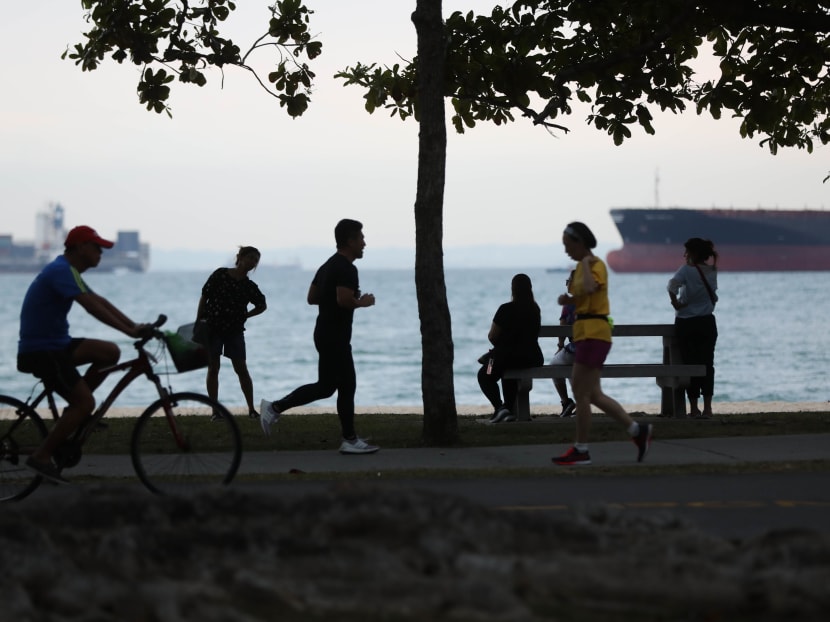Singaporeans are leading healthier lives but experiencing more mental health problems: Survey
SINGAPORE — Nearly half of Singaporeans say they are healthier now than before Covid-19 hit, with two-thirds of respondents more motivated to adopt healthier lifestyles, a survey released on Monday (July 5) found.

The survey highlighted the pandemic’s impact on the mental health of Singaporeans, who cited financial and work stress as the top reasons for mental health issues.
- A majority of Singaporeans are more motivated to be healthy, with 72 per cent of respondents declaring physical health a priority
- They are also spending more time and money on their health
- But 24 per cent of respondents felt anxious and 21 per cent said they were depressed
- Nearly four in 10 respondents said they had considered suicide at some point, with 13 per cent thinking about it at least once a week
SINGAPORE — Nearly half of Singaporeans say they are healthier now than before Covid-19 hit, with two-thirds of respondents more motivated to adopt healthier lifestyles, a survey released on Monday (July 5) found.
This is despite close to half of them — or 46 per cent — reportedly working longer hours, which have led to heightened stress and anxiety levels.
The survey, conducted by marketing communications agency Wunderman Thompson between February and March this year, looked at Singaporeans’ sentiment and behaviour with regard to their physical, mental, relational and financial health.
It polled a total of 1,000 Singaporeans aged between 18 and 70 across various income groups, education levels, races and professions.
The survey found that 66 per cent of respondents are more motivated to be healthy and 72 per cent have declared their physical health “very much” a priority.
They are also:
Feeling physically healthier than before the pandemic (44 per cent)
Exercising more (50 per cent)
Eating healthy meals more often (46 per cent)
Spending more on being healthy (54 per cent)
The survey authors said increased sales seen by bicycle shops and shared-bike services in 2020 showed that Singaporeans are spending more time and money on their health.
They also noted that home gym equipment was also among the bestselling items on online shopping site Lazada Singapore during the Singles’ Day sale in November last year.
“The nature of Covid-19, where the oldest and sickest are most likely to die if infected, has been an impetus for many to focus on staying well,” said the researchers.
However, as Singaporeans attempt to get physically healthier, many have picked up or increased their unhealthy habits in the last year, which include:
Spending more time on screens (73 per cent)
Becoming more sedentary (61 per cent)
Eating more junk food (46 per cent)
Not sleeping enough (40 per cent)
Drinking more alcohol (17 per cent)
Smoking more (13 per cent)
These unhealthy behaviours differ by income levels, the survey found, with high-income individuals reporting habits such as eating sweets, drinking coffee and smoking or drinking. Meanwhile, middle-income individuals are working long hours and eating more fried or junk food, and people earning lower income are living more sedentary lives and binge eating junk food.

4 IN 10 CONSIDERED SUICIDE
The survey also highlighted the pandemic’s impact on the mental health of Singaporeans, who cited financial and work stress as the top reasons for mental health issues.
Nearly one in four respondents — or 24 per cent — said they felt anxious while one in five — or 21 per cent — said they were depressed.
Most worryingly, nearly four in 10 respondents said they had considered suicide at some point, with 13 per cent thinking about it at least once a week.
Ms Malati Afridi, the chief experience officer at Wunderman Thompson Singapore and co-author of the study, said this is most prevalent among those under the age of 35 and those with young children under the age of six.
She added that those under the age of 35 are more likely to be in junior and middle-level roles in the workplace and may feel more work stress and financial insecurity.
For those with young children, she noted that working and studying from home, often in small spaces that are designed for neither, have raised tensions within households and led to 49 per cent of respondents agreeing that family stress has increased over the past year.
The survey also found that 36 per cent of respondents have seen an increase in domestic violence in their homes while 44 per cent have seen an increased anger level at home.
Evidently, suicide prevention agency Samaritans of Singapore said earlier this year that it received 39,492 suicide and crisis-related calls in 2020, up 18 per cent from a year earlier, with callers reporting more conflicts with romantic partners and family members.
“We’ve seen a lot of conflict going on with people who have young children at home. So potentially that means we are seeing increased tensions, we are seeing more domestic violence, arguments with partners and strained relationships. All these contribute to the way people feel about their mental health,” said Ms Afridi.
WOMEN LESS HEALTHY THAN MEN
Covid-19 highlighted the inequities within society, between gender, education levels, employment status and income, the researchers said.
Only 41 per cent of women feel physically healthier as compared to 47 per cent of men. The percentage of women who feel mentally healthier is also lower, at 43 per cent, as compared to 49 per cent of men.
“Women are feeling less healthy, mentally and physically, than men, perhaps because they’re doing less for themselves in their attempt to juggle their paid work with caring for children and elders — responsibilities that commonly fall on the shoulders of women,” said the researchers.
Across the board, there is a trend suggesting that individuals with higher income and education levels are more proactive in managing their mental and physical health.
As a result, they are also more satisfied with the level of the health of their body, mind, relationships and finances. This is despite the high-income earners — those earning S$75,000 annually and above — working the longest hours during the pandemic.
In contrast, those who have lost their jobs suffer from significantly poorer health — with 22 per cent reporting terrible mental health versus just 3 per cent of those employed.
Ms Afridi said: “The silver lining of the pandemic is that health is now the priority for everyone. We are exercising more, eating better, and even spending more on getting healthy.
"However, we are also seeing the rise of more mental health problems and, more broadly, deeper fault lines across society, even in a place like Singapore. This opens up the need for knowledge and tools to equip people to make better health choices across societal segments."








